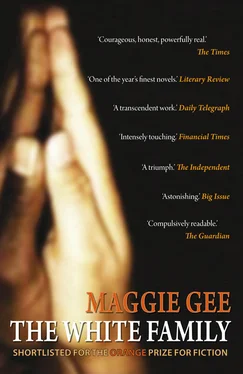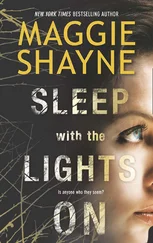Will he come back, now his father’s ill?
He always treated his family like dirt. Even his mum, who was nice to all of us hungry boys, piling in for tea after a football match. Alfred could be a bit sharp at times, but May was a darling, with her slow sweet smile and her dry sense of humour and passion for reading. I thought May did Darren’s English homework, but I was probably wrong. He had a knack with words. We both loved writing, in our different ways …
Melissa knows about Egyptian writing. She’s teaching her kids to write hieroglyphics, though quite a few of them still can’t write English. But Egypt’s on the National Curriculum. (She had blue-green eyes, like Egyptian stones. Goldy brown hair, and small golden freckles …)
He told himself to forget about her. He had things to do, he had grown-up worries.
Thomas shaved too fast, cutting himself. He’d given up his beard twelve months ago. Melissa said it made him look younger. Yet he felt quite old as he emerged, blinking, into the thin late sun of wintry London.
As he walked, his thoughts returned to the library. Something faintly disturbing had happened that morning. A young black man had approached the Inquiry Desk. ‘W King’, he had written his name. It was a face Thomas had seen before, he knew, though there were so many black students in the library. He sometimes thought the readers were mostly black, until he made himself count, one day. Funny how your mind played tricks on you. He guessed at the Christian name: Wesley? Wayne?
The young man’s face was memorable, high-cheek-boned, fine-featured. His eyes were peculiarly intimate, golden-brown with a steady gaze. Often Thomas didn’t meet people’s eyes — it got very tiring, dealing with the public — but this young man demanded to be looked at. ‘I left my name. I forgot some stuff. The man on the desk said he wasn’t a librarian.’ The punters always got puzzled by this, when the staff doing obviously librarian-like things, putting books on shelves, sitting at the Inquiry Desk, denied they were librarians — but it was the truth; most of them weren’t, because it cost more to have qualified staff.
As the young man gazed into his eyes, Thomas remembered why his name was familiar. It was written on those fanatical notes Suneeta had found the day before. ‘For the past four hundred years, the white man has been pumping his blood and genes into the blacks, has been diluting the blood and genes of the blacks … Many black homosexuals acquiesce in this racial death-wish.’ Obsessionally neat italic writing. And then he began to feel vaguely threatened, for W King, having reclaimed his notes, proceeded to eyeball Thomas closely as he read him a wish-list of titles, including two books by Eldridge Cleaver, and One Hundred Years of Lynchings . As the boy pronounced the titles, he had given a curious half-smile, half-laugh, at Thomas, and Thomas was aware of the boy’s height, and youth, and his long strong fingers, playing with a pen.
Frowning, he walked on into the cold, taking the road that passed the Park.
W King. He must live round here. He found himself peering at passing black youths with more than usual attention, then told himself to forget all about it. Libraries were always full of nutters. Parks, libraries … where else could they go?
It was hard to imagine the Park without Alfred. He was always in there, keeping an eye, guarding the flowers, bullying the kids when they tried to chase balls over the newly-bedded primulas, shouting at dogs, unblocking the drinking-fountain, forming little friendships with menopausal ladies, touching his cap to older ones, looking out for vandals in the toilets …
I don’t want anything to happen to Alfred.
Instead of going straight to the hospital, Thomas turned in through the gates of the Park, magnificent tottering fairy-tale things, Victorian curlicues of iron-work.
Inside, the council asserted itself with a new municipal notice-board. No Littering, No Soiling, No Golfing: No Motorcycles, No Camping, No Caravans. Were they afraid of Hell’s Angels and gypsies?
This was England. If in doubt, keep them out.
You weren’t allowed to sit on the bed.
It was the only regulation she knew, from long ago when she gave birth to Dirk. May didn’t like to break the rules, but the armchair was stuck right up by the bedhead where Alfred would get a crick in his neck from talking. She sank down on his bed with a sigh of content.
Rules and regulations. There were always rules. Their life at home was a mosaic of rules, mostly made by Alfred, but at least she knew them … Now they were on unfamiliar ground.
His body slipped very slightly askew as her weight changed the camber of the bed. He looked frail enough for a movement of the bedclothes to snuff him out, but she knew he was not. His bony strength would endure forever. Come rain, come shine he had gone to the Park and done his day’s work. Dawn till dusk. Summer and winter. Uncomplaining.
And many’s the time he should have complained, for they let him down often enough. But we didn’t complain. Not our generation.
Now Darren railed and complained for a living, writing pieces for the papers about ‘injustice’ and ‘corruption’. The real world seemed to astonish her son, which May could never understand. Of course life was unjust. Of course people were corrupt. She had known that ever since she was six and her teacher made a pet of a school governor’s daughter, although poor Elspeth was sour and plain. Of course the poor suffered and the rich flourished.
In any case, Darren was rich himself … but perhaps he wasn’t really indignant; perhaps he pretended, to make his articles more exciting. In which case it hadn’t worked, for her, for she no longer bothered to read the cuttings which arrived in bundles from all over the world. Alfred did, though. He read them, faithfully, and told Darren so in the curly-scrolled postscripts he added to her letters. His pride in their elder son was almost painful.
She gazed at his cheeks, which had sunken in as his jaw dropped with sleep, or was he getting thinner, was it happening already, the thing she dreaded? His beloved, angular, big-bridged nose on which he had perched his gold-rimmed glasses. Gently and fondly, she slipped them off, as she did at home when he dozed off in his chair. He couldn’t have meant to fall asleep, it must have sneaked up on him unawares …
All of it catches us unawares. What if he never wrote letters again, sitting in his waistcoat underneath the bright light in the living-room after tea and his nap, reading aloud the few short phrases he had written and asking her anxiously ‘Is that all right, May? Will it do?’ ‘Of course it’s all right. Put what you want to.’ Why did he need her reassurance so much? Men pretended to be strong, but really they were babies.
‘Mrs Um …’
‘Sorry?’
The nurse was freckled, pink, red-haired. ‘You might be more comfortable in this chair.’
‘I shouldn’t be sitting on the bed.’ May was mortified; told off by a teenager.
‘Oh no, it doesn’t matter, but the chairs are meant for visitors.’ The girl dragged the great heavy thing across, with a long squeal of chair-legs on polished lino.
‘Thank you.’ May felt her deep, hot blush, but the nurse skipped away with the sweetest of smiles.
How did they keep it up, with all these to look after? How did they manage to be so kind?
The armchair was a disaster, though. Its brown plastic seat didn’t yield at all, and its back was completely straight, tipping her chin forward, straining her neck. The unpadded wood hurt her elbows and wrists.
She felt a wave of longing for her normal comforts. Buttering the bread with the radio on, getting the tea-things out of the cupboard … But home wasn’t home with just her and Dirk. The boy hadn’t really talked to her for years.
Читать дальше












